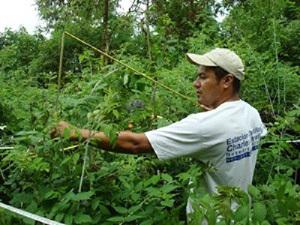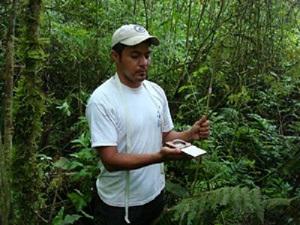Jorge Luis Renteria
Other projects
21 Aug 2008
Integrated Weed Management in Galapagos – Combining Methods to Improve Control of the Invasive Rubus niveus and Leucaena leucocephala
The project aims to assess the ecological impacts of the invasive Blackberry on the native plants communities of the Scalesia forest.

Blackberry (Rubus niveus) is one of the worst invasive plants present in the Galapagos Islands. Blackberry has invaded open vegetation, shrub land and forest alike. It forms dense thickets up to 4 meters high, replacing native vegetation, and threatening several native communities such as Scalesia pedunculata.

Fieldwork
In the agricultural zone the blackberry has spread aggressively and therefore transforming farmland into land useless for agriculture. So far, no studies have been carried out about the impacts of Blackberry in Galapagos; however, studies in Hawaii, Australia and La Réunion, where some other Blackberry species have demonstrated the negative long-term impacts of this species on natural ecosystems. Blackberry invasion can reduce the ecological value of natural areas, affecting the ecotourism and agricultural productivity.
This study aims to produce the base line to better understand the ecological impacts and the invasion dynamics of Blackberry and to predict and estimate the possible scenarios under different control strategies.